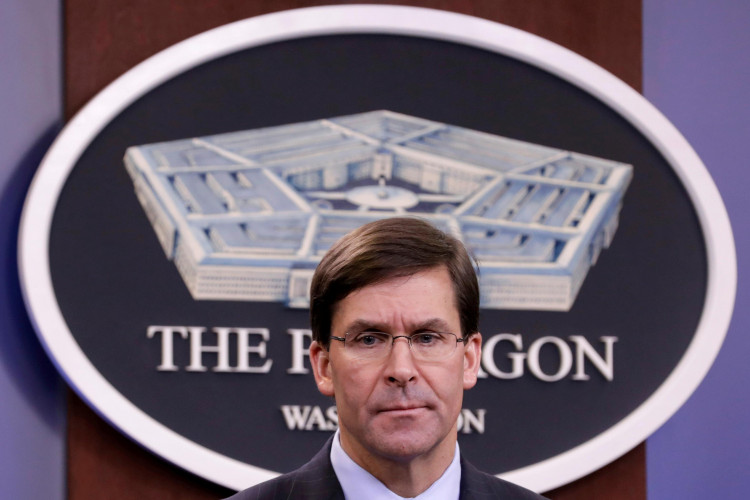The United States will never cede an inch of ground in the Indo-Pacific region to China, neither will it abandon its "responsibility to lead" in this strategically important area, said U.S. secretary of defense Mark Esper.
Talking from Hawaii on Thursday, Esper also blasted the Chinese Communist Party (CCP) for its provocative behavior in the region, abetted by the relentless modernization of its armed forces, the People's Liberation Army.
Esper called the Indo-Pacific the epicenter of a "great power competition with China." He said the United States won't back away from China's global challenge and needs to be able to deal with China, and Russia, globally.
"The United States has a responsibility to lead," Esper emphasized.
"We're not going to cede this region, an inch of ground if you will, to another country. Any other country that thinks their form of government, their views on human rights, their views on sovereignty, their views on freedom of the press, freedom of religion, freedom of assembly, all those things, that somehow that's better than what many of us share."
He pointed out the United States has been a "Pacific country, an Indo-Pacific country, for quite a long time."
He again warned the world against China's aggressive military modernization program that will allow China to project its military power globally.
"To advance the CCP's agenda, the People's Liberation Army continues to pursue an aggressive modernization plan to achieve a world class military by the middle of the century," Esper said.
"This will undoubtedly involve the PLA's provocative behavior in the South and East China Seas, and anywhere else the Chinese government has deemed critical to its interests."
Esper also said China refuses to abide by its many promises to abide by international law, rules and norms to enable it to project Chinese power globally.
Despite its stubborn effort to contain and deter China, the U.S. still leaves open the door to diplomacy. Esper said the U.S. will "hopefully continue to work with the People's Republic of China to get them back on a trajectory that is more aligned with the international rules-based order."
Esper also said he plans to visit China for talks on "crisis communications."
China took offense at Esper's comments and assailed "certain U.S. politicians" for damaging Sino-U.S. military ties ahead of the U.S. presidential election in November for their own selfish gains. It accused these individuals of even seeking to create military clashes.
The Ministry of Defense said China isn't afraid of "provocation and pressure" from the U.S., and "will resolutely defend itself and not allow the United States to cause trouble."





